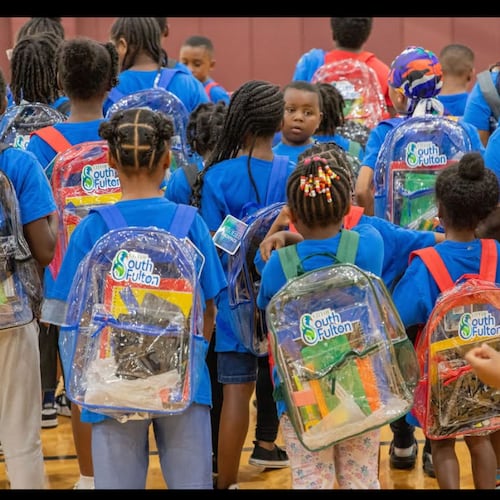There’s a shooting at your child’s school.
Your child is physically fine, but there may be a psychological toll even if a student didn’t witness the act.
That's what parents may grapple with after a Douglas County high school teacher shot himself Thursday in the classroom.
Around 7:15 a.m., before students arrived, a Lithia Springs High School teacher shot himself with a handgun, according to the Douglas County Sheriff’s Office. The teacher was listed in stable condition Thursday afternoon.
Students are expected to return to class Friday. Many schools provide grief and crisis counseling for students and staff, if needed.
Once they come home though, how to you talk to your child about trauma?
Even if students didn’t witness the shooting, perhaps “they know the person or they may have had friends who know him. Or it may trigger something from their own history,” said Nadine Kaslow, a professor at the Emory University School of Medicine. “Perhaps the child had someone in his family who was shot.”
Some express their emotions in response to these kind of stresses and others “shut these kind of things off,” she said.
Whatever the case, parents should be prepared to talk and most importantly, listen to their children, said Kaslow.
Social worker Juan Moore of Walk of Life Counseling Center in Atlanta, suggests parents continue to talk with their children about what happened for several days or weeks after the incident.
“Even if you think your child is alright, there can be a delayed response,” he said.
Here are some tips from the American Psychological Association when dealing with children and trauma:
- Think about what you want to say. Some advanced planing may make the discussion easier.
- Find out what they know. For example, there was a shooting at a school or a bomb set off in another country. Ask them "What have you heard about this?" And then listen.
- Tell the truth. Lay out the facts at a level they can understand. You do not need to give graphic details.
- Sometimes the answer to the question is "I don't know. "Why did the bad people do this?" "I don't know."
- Above all, reassure. At the end of the conversation, reassure your children that you will work to keep them safe and to watch out for them. Be available to answer any questions or talk about this topic again in the future. Reassure them that they are loved.
About the Author
Keep Reading
The Latest
Featured

